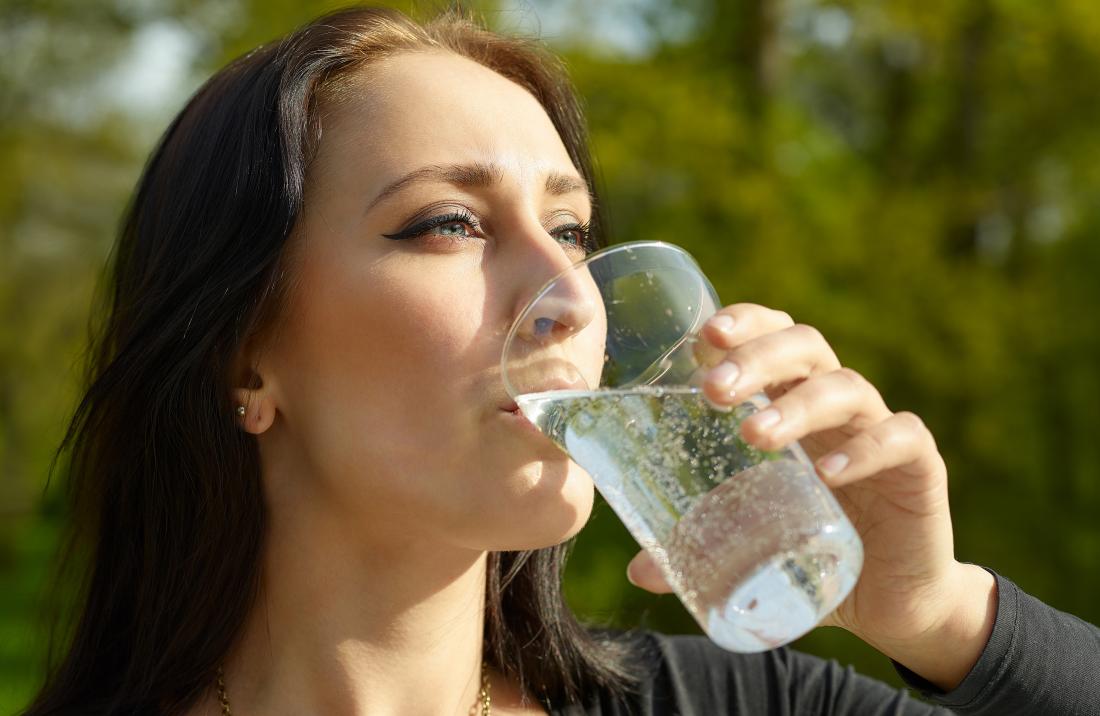Last Updated on January 6, 2025
Yes, it is generally safe to drink tonic water while pregnant, but in moderation. Tonic water contains a small amount of quinine, which is a compound used to treat malaria.
Drinking excessive amounts of quinine during pregnancy may pose a risk to the baby. However, the amount of quinine in tonic water is usually low, so having a few sips or enjoying a small glass occasionally should not cause harm.
It is always best to consult with your healthcare provider before consuming any new food or beverage during pregnancy to ensure it is safe for you and your baby.

Credit: www.medicalnewstoday.com
Understanding Tonic Water And Its Ingredients
Tonic water has long been a popular choice for mixing with alcoholic beverages or enjoying on its own. But if you’re pregnant, you may be wondering if it’s safe to consume tonic water. In this section, we’ll delve into the world of tonic water and its key ingredients to help you make an informed decision.
Let’s start by understanding what exactly tonic water is.
What Is Tonic Water?
Tonic water is carbonated water that has been flavored with quinine and other ingredients. Originally created as a way to combat malaria, tonic water gained popularity for its unique bitter taste and ability to add a refreshing twist to cocktails.
However, the primary role of tonic water is no longer medicinal, and it is now primarily consumed for its distinctive flavor profile.
Common Ingredients Of Tonic Water
Tonic water typically contains a variety of ingredients, which contribute to its taste and aroma. The following are some common ingredients you’ll find in most tonic waters:
- Carbonated water: Provides the fizzy texture that makes tonic water enjoyable.
- Quinine: Gives tonic water its distinctive bitterness and is derived from the bark of the cinchona tree.
- Sweeteners: Sugar or artificial sweeteners are added to balance the bitterness of quinine.
- Citric acid: Enhances the flavor and provides a slight tanginess to the drink.
- Natural or artificial flavorings: Additional flavors like lemon, lime, or herbs are often included to enhance the overall taste.
The Role Of Quinine In Tonic Water
Quinine, a key ingredient in tonic water, is derived from the cinchona tree and has a long history of use in treating malaria. In tonic water, it adds a bitter taste that makes the drink unique. However, it’s important to note that the quinine content in commercial tonic water is significantly lower than the amounts used in therapeutic treatments.
The u. s. food and drug administration (fda) allows a maximum quinine concentration of 83 parts per million (ppm) in tonic water, which is considered safe for consumption.
Is Tonic Water Safe For Pregnant Women?
While tonic water is generally safe to consume during pregnancy, it’s essential to consider a few factors. The key concern is the quinine content, as excessive intake of quinine during pregnancy may have adverse effects. However, the quinine levels in commercially available tonic water are well within the safe range recommended by the fda.
It’s important to remember that moderation is key, and it’s always a good idea to consult with your healthcare provider before making any dietary choices during pregnancy.
To sum up, tonic water is a carbonated beverage flavored with quinine and other ingredients. While the quinine content in commercial tonic water is considered safe, it’s important to consume it in moderation during pregnancy. As with any dietary decision, it’s best to consult with your healthcare provider to ensure it aligns with your specific needs and circumstances.
Potential Risks Of Consuming Tonic Water During Pregnancy
Can You Drink Tonic Water While Pregnant?
Tonic water is a popular beverage known for its unique taste and use as a mixer in cocktails. However, if you are pregnant, you may be wondering whether it is safe to consume tonic water. While tonic water typically contains a small amount of quinine, a compound derived from the bark of the cinchona tree, it is important to be aware of the potential risks it may pose during pregnancy.
Effects Of Quinine On Pregnancy
- Quinine is a medication primarily used to treat malaria. When consumed in large amounts, it can cross the placenta and affect your developing baby.
- It is important to note that the level of quinine in tonic water is significantly lower compared to therapeutic doses used for treating malaria. However, it is still important to exercise caution.
Increased Risk Of Miscarriage
- Some studies have suggested a potential link between high levels of quinine consumption during pregnancy and an increased risk of miscarriage.
- It is important to consult with your healthcare provider to determine if the amount of quinine in tonic water poses any risk to your pregnancy.
Impact On Fetal Development
- Quinine has been shown to have an impact on fetal development when consumed in large amounts.
- Animal studies have shown that high doses of quinine can affect the central nervous system of the developing fetus.
- However, it is unclear whether the small amount of quinine found in tonic water poses a significant risk to fetal development.
Interaction With Medication
- If you are taking any medications during pregnancy, it is crucial to take into account the potential interactions between the medication and quinine.
- Quinine can interact with certain medications, including blood thinners and drugs used to treat heart conditions, leading to potentially harmful side effects.
Considering the potential risks associated with consuming tonic water during pregnancy, it is advisable to consult with your healthcare provider before including it in your diet. Your healthcare provider can provide personalized guidance based on your individual circumstances and help you make an informed decision regarding the consumption of tonic water while pregnant.
Frequently Asked Questions Of Can You Drink Tonic Water While Pregnant?
Is It Safe To Drink Tonic Water During Pregnancy?
Yes, it is generally safe to drink tonic water in moderation during pregnancy. However, it’s important to be aware of the ingredients and consult with your healthcare provider.
Does Tonic Water Have Any Benefits During Pregnancy?
Tonic water contains quinine, which can help with muscle cramps and restless legs syndrome during pregnancy. However, it’s important to limit your intake due to the potential risks associated with quinine.
Are There Any Risks Associated With Drinking Tonic Water While Pregnant?
Drinking large amounts of tonic water can be harmful due to the high levels of quinine. It’s important to moderate your consumption and consult with your healthcare provider to ensure it’s safe for you.
How Much Tonic Water Can I Safely Drink During Pregnancy?
It is recommended to limit your intake of tonic water to no more than one glass per day during pregnancy. However, it’s best to consult with your healthcare provider for personalized advice.
Can I Opt For Non-Alcoholic Tonic Water During Pregnancy?
Yes, non-alcoholic tonic water is a safe alternative during pregnancy. Just ensure that it does not contain high levels of quinine and consult with your healthcare provider to make an informed decision.
Conclusion
To sum up, while tonic water generally consists of carbonated water and quinine, it is important to understand the potential risks and benefits of consuming it during pregnancy. While there is limited research on the effects of quinine during pregnancy, it is recommended to exercise caution and moderate your intake due to its potential to cross the placenta and affect the fetus.
Additionally, tonic water often contains added sugars and artificial sweeteners, which may have negative impacts on both the mother and the developing baby. However, if you are experiencing muscle cramps or restless leg syndrome, speaking with your healthcare provider about potential alternatives or a safe amount of tonic water to consume may be beneficial.
Ultimately, it is crucial to prioritize the health and well-being of both the mother and the baby during pregnancy, and consulting with a healthcare professional is always the best course of action when considering the consumption of any food or beverage.











